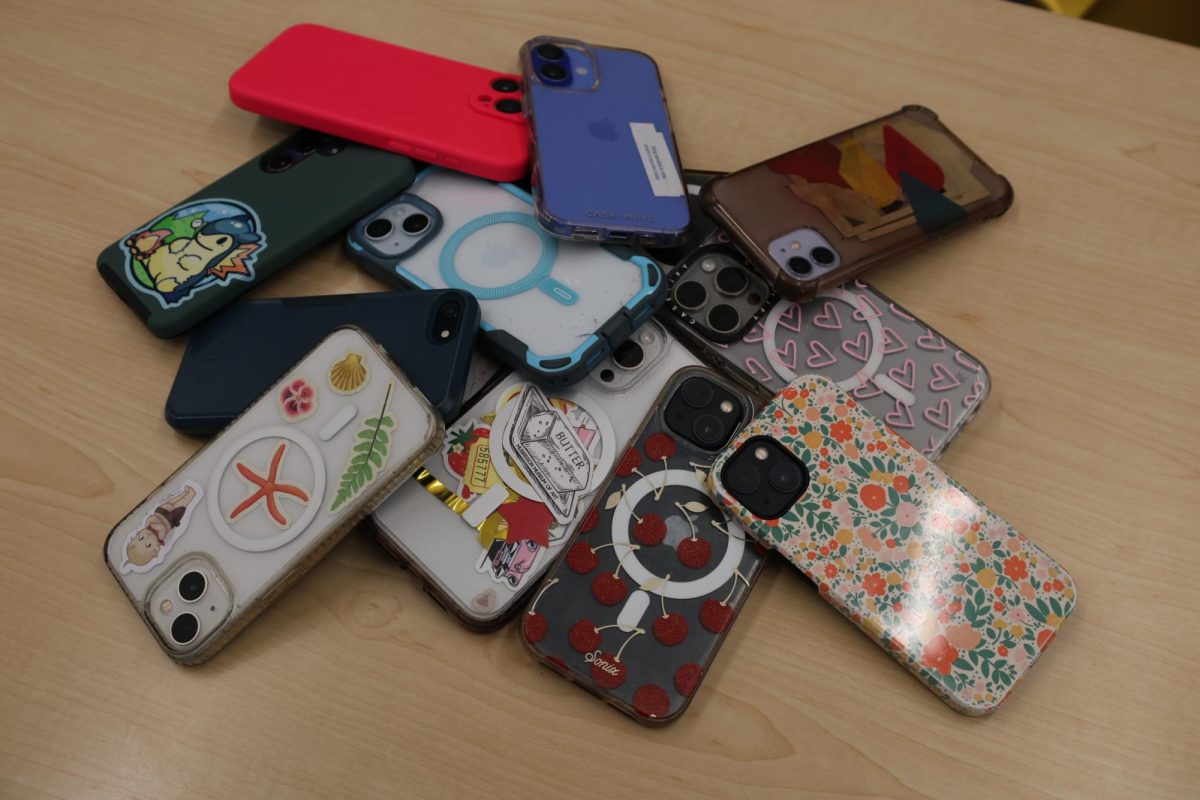While walking around anywhere in the world, the majority of people are stuck in an alternate reality that nobody really knows. What is everyone looking at? It’s just a glowing square that shows different things when you click on something. Is that something children should have access to, or should parents wait to give their children the glowing square until their brain is fully developed?
I got my first phone when I was at the beginning of 7th grade. I wasn’t allowed to have social media, so there was nothing for me to get involved in. I was able to text my friends, and whenever I heard the buzz telling me that I got a text from a friend, I would immediately check it. At such a young age, before I was even halfway through middle school, I was already relying on my phone for everything. It quickly became my main source of entertainment, something that was always on my mind, especially while at school.
But what happened to me being curious? I used to ask my parents so many questions about the smallest things, I was so interested in my surroundings and what was happening around me. Once I got my phone, I turned to Google to give me the answers. I stopped noticing the world around me and became less curious. I started asking fewer “why” questions to people, and started typing the question into the search bar on my phone. Even then, I still asked fewer questions in general. No more “why?” or “what if?”. I didn’t have anything to ask, because I didn’t notice anything. I was already relying on my phone at the age of 13 years old.
While it might have seemed like I was too young to have a phone, studies at Stanford Med have shown that children at the age of 13 with phones did not seem to have meaningful links to their well-being and adjustment outcomes. The study followed 250 low-income Latino children for five years and found that children who got a phone younger than 11.6 did not get more sleep, problems at school or worse depression symptoms compared to those who got a phone later.
In a survey done by doctors at Brown University Health, 45 percent of parents believed that 12 to 14 is the right age for a smartphone, 16 percent believed ages 9 to 11 and 28 percent believed ages 15 to 17. Most people in the study agree that between the ages of 12 and 14, children are ready to have their first cell phone.
A 2025 study in the Journal of the Human Development and Capabilities found that using smartphones before age 13 was associated with negative mental health outcomes, such as suicidal thoughts, lower self-esteem and detachment from reality, especially in girls. It shows that for children, delaying getting a phone before the age of 13 years old may be the most beneficial for children’s mental health. However, a child’s maturity and responsibility level, not just their age, should be a key factor in the decision on what age to get their child a phone.
In the article “When Should You Get Your Kid a Phone?” by Caroline Miller, they say, “42 percent of kids have a phone by age 10. By age 12, it’s 71 percent. By 14, it’s 91 percent.”
Many aspects should be taken into consideration when deciding at what age children should get phones, such as the child’s responsibility, if additional communication is needed and the child’s current mental health can determine if they get a phone earlier or later than 13 years old.










